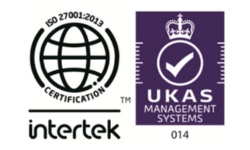All businesses experience time debt, but is yours negatively impacting your company? If you’re finding that you and your team are constantly playing catch-up your business is likely suffering from time debt.
Having a long to-do list and feeling like you can’t catch up can be demoralising for staff making it even harder to complete tasks. If you feel you’re suffering from time debt but don’t know how to avoid it, this blog will explore everything you need to know.
What is time debt?
Time debt is when you undertake actions that will cost you more time in the future. This includes things like:
● Ignoring or putting off emails and tasks.
● Sending emails.
● Low-quality work.
● Poor planning.
While not all time debt is necessarily bad, things like sending emails can cause time debt as you’re committing to reading and replying to an email in the future.
The negative impacts of time debt
Reduced productivity
Time debt has a significant impact on productivity. Rushing through tasks to meet deadlines and badly planning projects can reduce staff’s productivity. As a result, projects and tasks will need to be restarted due to their initial poor quality. Continually having to re-do tasks can be stressful and hinder motivation.
Increased stress
Worrying about unfinished tasks, correcting errors and missing deadlines can be stressful. This can make it difficult for staff to focus on the task at hand as they’re also concerned about all of the tasks they haven’t completed and how it’s eating into their time. Knowing that you’re behind on jobs can be overwhelming and frustrating, causing a lack of motivation within your company.
How to prevent time debt
Prioritise tasks
Effectively prioritising tasks can help you reduce your current time debt and avoid it in the future. When planning your tasks you may want to focus on ones with urgent deadlines, delegate less critical tasks across the team and say no to tasks or meetings you don’t have time for.
While there are some meetings and jobs you can’t say no to, it’s important that you don’t commit to everything. Over-committing can make it difficult to complete tasks on time and lead to feeling stressed and overwhelmed. Businesses should make it clear to their staff that they have the ability to say no to things and manage their workload accordingly to help them complete tasks on time and reduce time debt.
Create thorough plans
When projects are planned properly it reduces the chances of time debt occurring. Your plan can include:
● The scope of the project.
● Any identified potential risks or blockers.
● How you’re going to allocate resources.
● How you will approach potential issues or setbacks.
By planning ahead, outlining clear steps, and anticipating potential issues, you can avoid panic and problems that cause time debt. Being prepared allows you to build buffer times for unexpected challenges, helping your team stay on track.
At the end of the day, when you thoroughly plan you’re more likely to deliver quality results by your deadline, helping you eradicate time debt once and for all.
Communicate clearly
Clear communication ensures everyone is on the same page from the get-go, helping to reduce miscommunications. Clearly defining expectations and deadlines and addressing any potential issues helps you and your team avoid any wasted time. This also allows people to highlight any potential issues early on, making it easier for plans to be adjusted before they cause any problems. This in turn helps businesses avoid time debt.
Preventing time debt with Payescape
We understand the negative impacts time debt can have on you and your business, which is why our software helps you reduce it within your payroll, HR and time and attendance efforts. Our software’s ability to automate tasks saves your team time on tedious jobs, giving them more time to work on more complicated roles and projects. This helps prevent time debt and improves employee morale.
Get in touch with Payescape today to see how we can help you reduce time debt.














